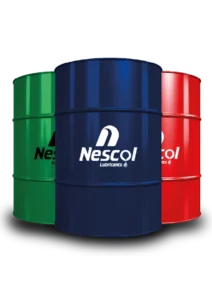How Group II Base Oils Can Improve Your Machinery's Efficiency and Longevity
In the industrial world, the performance and longevity of machinery largely depend on the quality of lubricants used. Lubricating oils, such as base oils, play a crucial role in minimizing friction, preventing corrosion, and ensuring the efficient operation of machines. Among the different types of base oils available, Group II base oils stand out for their excellent stability, oxidation resistance, and cost-effectiveness. This article delves into the benefits of using Group II base oils and their impact on improving machinery’s efficiency and lifespan.
What Are Group II Base Oil?
Base oils are the primary component of lubricating oils, forming the foundation for engine oils, hydraulic fluids, and industrial lubricants. Group II base oils are a category of mineral oils produced through a refining process known as hydrocracking. This process improves the quality of the base oil, resulting in a highly refined product with enhanced performance characteristics.
Group II base oils are characterized by their lower levels of sulfur, high stability, and improved oxidative resistance compared to Group I base oils. Their production process involves hydrogenation to remove impurities, which allows them to offer better performance in terms of heat resistance and reduced volatility.
Group II Base Oil Specifications
When selecting a Group II base oil for industrial machinery, it’s important to consider the specifications to ensure it meets the required performance standards. Key specifications for Group II base oils include:
- Viscosity: Group II oils are available in a wide range of viscosities, allowing businesses to choose the oil that best suits the machinery’s operating conditions.
- Flash Point: The flash point indicates the temperature at which the oil can ignite. Group II base oils typically have a high flash point, making them safe to use in high-temperature environments.
- Pour Point: The pour point refers to the lowest temperature at which the oil will flow. Group II oils generally have low pour points, ensuring that the oil flows smoothly even in cold conditions.
- Sulfur Content: Group II oils contain less sulfur than Group I oils, which enhances their environmental performance and reduces the potential for harmful emissions.
Advantages of Group II Base Oil in Machinery
Improved Oxidation Stability
One of the primary advantages of Group II base oils is their superior oxidation stability. Oxidation is a chemical reaction that occurs when oil is exposed to air and heat, leading to the formation of sludge and varnish. These deposits can clog up machinery and reduce its efficiency. Group II base oils are highly resistant to oxidation, which means they last longer, maintain their viscosity, and keep machinery running smoothly for extended periods.Enhanced Viscosity Index
The viscosity index (VI) measures how the viscosity of an oil changes with temperature. A high VI indicates that the oil remains consistent in performance under a wide range of temperatures. Group II base oils generally have a higher viscosity index than Group I oils, meaning they provide more consistent lubrication in varying environmental conditions, leading to more efficient machinery performance.Lower Volatility
Group II base oils have lower volatility, which means they evaporate less at high temperatures compared to other base oils. This property is especially important for machinery operating in high-temperature environments, as it ensures that the lubricant remains in place, providing continuous protection and reducing the need for frequent oil replacements. Lower volatility contributes to improved efficiency and reduces the risk of overheating in machinery.Improved Cleanliness and Protection
The high level of refining in Group II base oils results in fewer impurities and contaminants. This leads to cleaner engines and machinery, as well as better protection against wear and corrosion. Over time, less sludge and carbon buildup will occur, ensuring that the machinery’s internal components remain clean and functional.Cost-Effectiveness
Group II base oils offer a good balance between performance and cost. While they are not as advanced as Group III or synthetic oils, they provide excellent performance at a more affordable price point. This makes them an attractive option for businesses looking to improve machinery efficiency without breaking the bank.
The Role of Group II Base Oil in Industrial Applications

Group II base oil are widely used in various industrial applications, ranging from automotive engines to industrial machinery and manufacturing processes. Their versatility makes them an ideal choice for businesses looking for reliable lubricants to protect and improve their machinery’s performance.
Automotive Industry
In the automotive sector, Group II base oils are commonly used in engine oils, transmission fluids, and gear oils. They provide superior protection against engine wear, reduce friction, and help improve fuel efficiency. The ability of Group II base oils to maintain their viscosity at high temperatures ensures that engines run smoothly even in extreme conditions. This makes them an excellent choice for manufacturers who want to enhance the lifespan and reliability of vehicles.
For example, modern engine oils formulated with Group II base oils offer enhanced performance in high-performance engines, helping vehicles meet stringent emissions regulations and reduce overall operating costs.
Industrial Manufacturing and Heavy Equipment
Heavy machinery used in industrial manufacturing processes, such as pumps, compressors, and hydraulic systems, often operates under extremely high loads and at elevated temperatures. Group II base oils provide exceptional oxidative stability, which prevents breakdown and sludge formation that could damage these critical machines. With Group II oils, businesses can ensure that their machinery operates efficiently for longer periods, reducing the risk of breakdowns and the associated costs.
In industries such as construction, mining, and agriculture, where machinery is exposed to demanding conditions, Group II base oils help keep equipment running smoothly. These oils also provide effective protection against wear and corrosion, extending the life of heavy machinery and allowing businesses to avoid costly replacements.
Lubricants for Food-Grade and Pharmaceutical Applications
In industries that require food-grade lubricants or lubricants used in pharmaceutical manufacturing, the purity and performance of base oils are paramount. Group II base oils, being highly refined and low in impurities, are an excellent choice for such applications. They meet the stringent hygiene and safety standards required in these sectors, ensuring that the machinery continues to operate without introducing contaminants to the products being produced.
Using high-quality lubricants like Group II base oils in food-grade machinery helps to maintain the safety and quality of the products while ensuring the smooth operation of the equipment.
The Future of Group II Base Oils: Advancements and Innovations
As industries continue to evolve, so too does the technology behind lubricants and base oils. Group II base oils have already made significant strides in terms of performance, but future innovations are expected to make them even more efficient.
Integration with Synthetic Oils
One promising direction for Group II base oils is their potential to be blended with synthetic oils to create hybrid formulations. These hybrid oils combine the best of both worlds, offering the high performance of synthetic oils with the cost-effectiveness and environmental benefits of Group II oils. This innovation allows businesses to access premium performance at a more affordable price point.
Advanced Additives and Formulations
In response to the growing demands for higher performance and greater energy efficiency, base oil suppliers and manufacturers are continually developing new additives that enhance the properties of Group II base oils. These additives improve performance in areas such as wear protection, friction reduction, and anti-foaming properties. As a result, businesses will continue to benefit from more durable, high-performing lubricants that help reduce energy consumption and extend equipment life.
How Group II Base Oils Contribute to Machinery Longevity
The longevity of machinery is directly linked to the quality of the lubricant used. Group II base oils offer several benefits that can significantly extend the lifespan of machinery:
Reduced Wear and Tear
The high stability and resistance to oxidation in Group II base oils help reduce wear and tear on critical components such as gears, bearings, and pistons. The oil’s ability to maintain its lubricating properties over time ensures that these components remain well-lubricated, preventing excessive friction and premature failure.Lower Maintenance Costs
Using Group II base oils can lead to fewer oil changes and reduced downtime. Since these oils have a longer service life and provide better protection against oxidation and contaminants, businesses can expect lower maintenance costs over the long term.Better Performance in Extreme Conditions
Machinery often operates under extreme conditions, such as high temperatures or heavy loads. Group II base oils are designed to withstand these harsh environments, ensuring that the machinery continues to perform at its best even in challenging conditions.Extended Oil Drain Intervals
The stability of Group II base oils allows for extended oil drain intervals. This means that businesses don’t need to change the oil as frequently, leading to fewer interruptions in production and a reduction in maintenance labor and oil disposal costs.
How to Choose the Right Base Oil Supplier or Trader in UAE
When selecting a base oil supplier or trader in UAE, it’s essential to look beyond just price. Several factors can influence the overall quality and suitability of the oil for your machinery’s specific needs:
Reputation and Reliability
Choose suppliers with a strong reputation for providing high-quality lubricants. Trusted base oil traders in UAE have a track record of delivering consistent products that meet industry standards.Product Range
A good base oil supplier will offer a wide variety of oils to cater to different industrial applications. Whether you’re looking for oils for automotive engines, heavy machinery, or food-grade applications, a reputable supplier will have the right product to meet your needs.Technical Support and Expertise
The best base oil suppliers will offer technical support and guidance to help you choose the right lubricant for your machinery. Look for suppliers who understand the specific requirements of your operations and can advise on oil selection, maintenance schedules, and performance optimization.Price and Availability
Price is always an important factor when selecting a base oil supplier, but it should not be the sole consideration. A reliable supplier will offer competitive prices while maintaining the quality and availability of the products.Customer Service and Delivery
When working with base oil suppliers or traders in UAE, timely delivery and excellent customer service are essential. A good supplier will ensure that orders are fulfilled promptly and provide support in case of any issues with the product.

